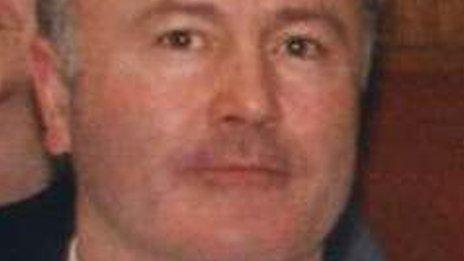Clutha crash: Pilot David Traill's reputation 'sullied' by inquiry
- Published

Capt David Traill's partner said the inquiry's determination did no justice to his reputation or the memories of nine others killed
The fiancee of the helicopter pilot who died in the Clutha crash has described the fatal accident inquiry's findings as "distressing and incomprehensible".
Dr Lucy Thomas said she felt compelled to respond after Sheriff Principal Craig Turnbull "opted to sully the distinguished reputation" of the pilot.
The inquiry, which closed on Thursday, found Captain David Traill "took a chance" and ignored low fuel warnings.
The police helicopter crashed into the Glasgow bar's roof on 29 November 2013.
The tragedy claimed the lives of the pilot, his two crew members and seven customers in the pub.
Mr Turnbull said the tragedy happened because 51-year-old Captain David Traill had ignored the five warnings he received during the flight.
He said that was a "conscious decision" which had "fatal consequences" for the 10 people who died.
Crew members PC Tony Collins, 43 and PC Kirsty Nelis, 36, were killed, as were customers Gary Arthur, 48; Joe Cusker, 59; Colin Gibson, 33; Robert Jenkins, 61; John McGarrigle, 58; Samuel McGhee, 56; and Mark O'Prey, 44. Another 31 people were injured.
'Misleading information'
Dr Thomas, who was engaged to Captain Traill, broke almost six years of media silence on the incident with a public statement.
She said: "Such is my strength of feeling since the sheriff principal's determination on the fatal accident inquiry into the Clutha helicopter crash, I feel compelled to make this statement.
"I am overwhelmed by the support that I have received from so many people, many of whom don't know me and didn't know Dave. I am eternally grateful for this.
"It is my understanding that due to misleading information from the aircraft fuel gauge and display system, Dave had only moments to make decisions and carry out tasks in an attempt to respond to this issue."
The manufacturer's maintenance manual incorrectly said there was three to four-minute flameout time before the helicopter would lose both engines, but in reality he only had 32 seconds, Dr Thomas said.
"That 32 seconds ended in tragedy and the loss of his and nine other valuable lives. This has devastated the lives of all who surround them and impacted on so many more."
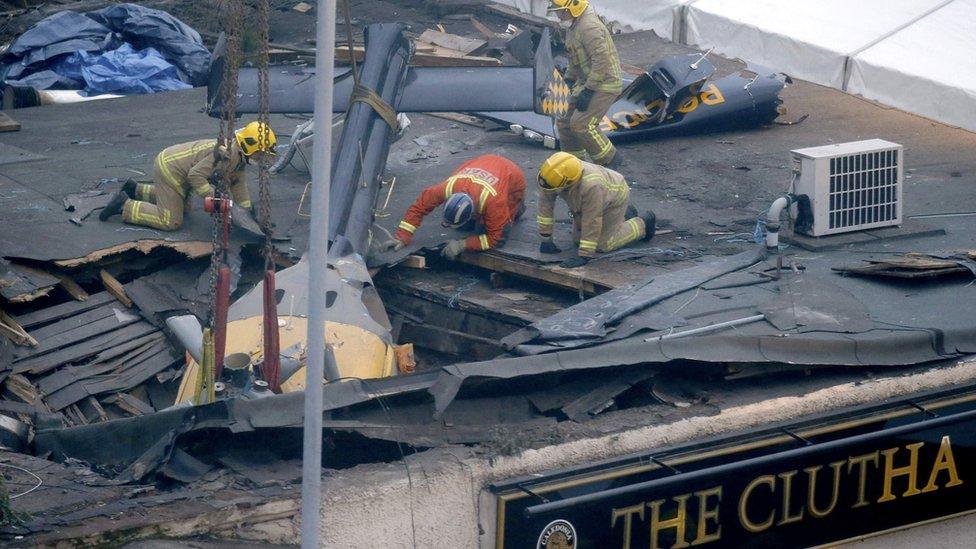
Dr Thomas said the determination did "no justice to the memories" of the nine other people killed in the crash or to the "memory and reputation of Dave Traill".
"It insults the intelligence of those who know of the evidence presented at the inquiry and are aware of the content of the initial AAIB report," she added.
The expression of disbelief from many family members of those who died at the conclusion drawn in the inquiry "speaks volumes and means much more to me than the opinion of the sheriff principal", she said.
"I find it distressing and incomprehensible that given months, not moments, to consider the facts, the sheriff principal has come to this conclusion."
'History of faults'
Dr Thomas pointed out the EC135 model of helicopter's "history of faults with the caution advisory display" amongst other technical problems such as contamination of the fuel tanks, which she said were never fully resolved by the manufacturer.
"Instead, the sheriff principal has opted to sully the distinguished reputation of a pilot with an exemplary record who was renowned for his sense of responsibility and his regard for the safety of his crew," she said.
"The opportunity for closure and maybe some peace for so many people has been denied."
Following the 32-day inquiry, which heard testimony from families, experts and eyewitnesses, Mr O'Prey's father Ian said he was "really angry" at the inquiry's findings and that Capt Traill had been made "a fall guy".
The Clutha's owner, Alan Crossan, also expressed "shock and disappointment" at the report and how "brutal" it had been towards Capt Traill.
In his findings, external, Mr Turnbull said there was "no doubt" that the crash had happened because the helicopter's engines "flamed out" due to a lack of fuel.
The fuel supply tanks had been depleted because Capt Traill had failed to ensure that at least one of the aircraft's fuel transfer pump switches was on.
"The central question for the inquiry is why did that happen?" said Sheriff Turnbull.
"The answer is a simple one. Capt Traill ignored the low fuel warnings he received."
- Published30 October 2019
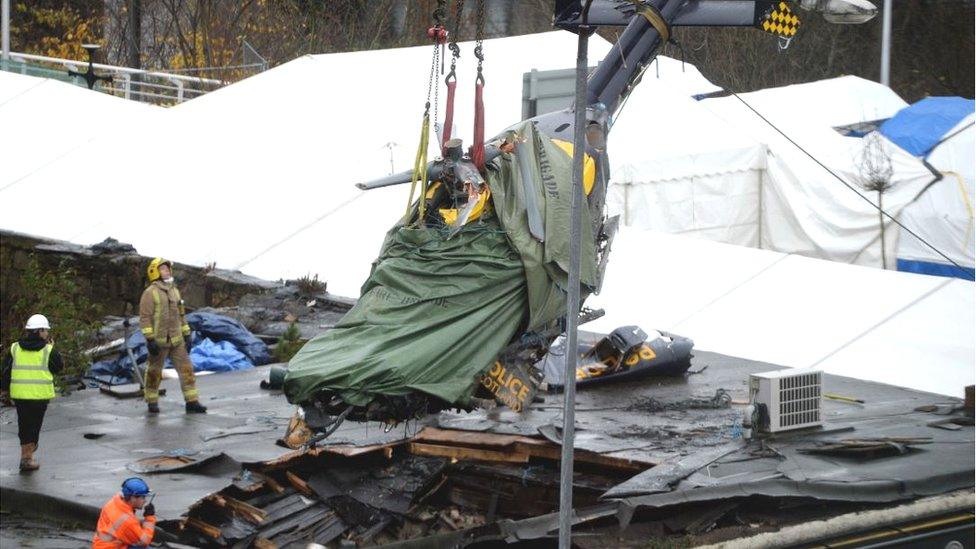
- Published30 October 2019

- Published29 November 2023
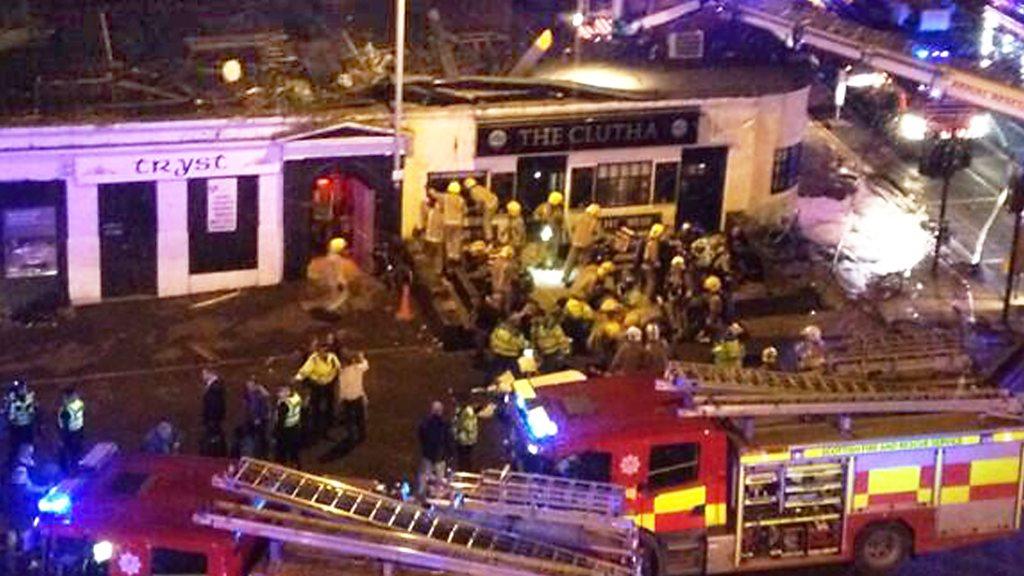
- Published10 April 2019
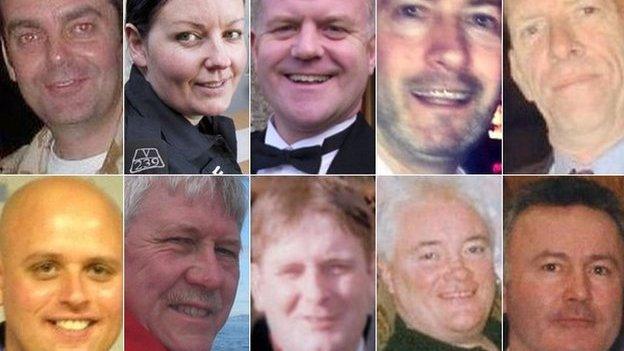
- Published8 April 2019
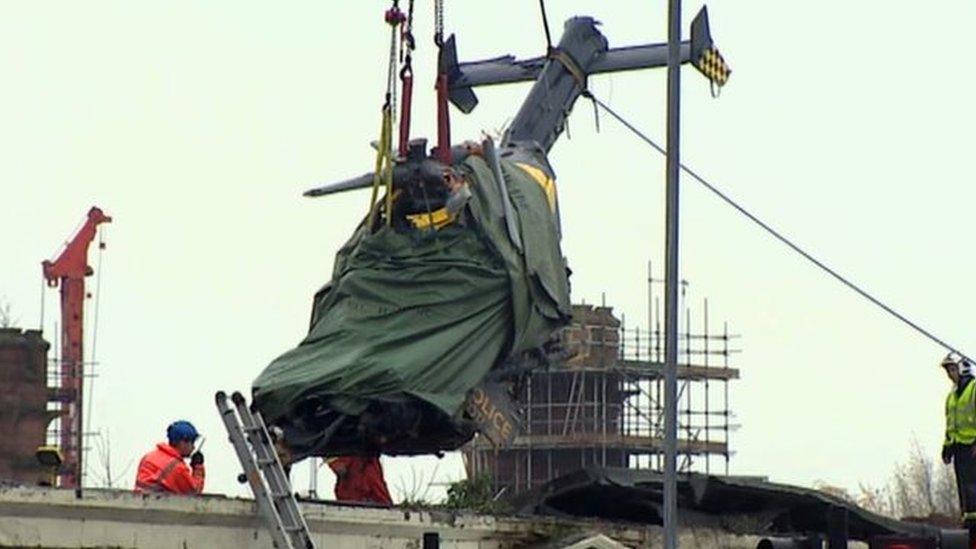
- Published14 February 2014
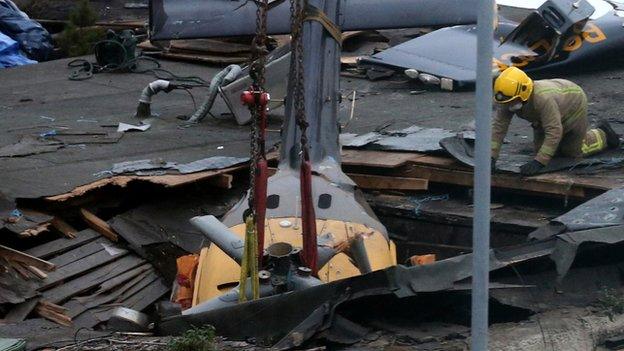
- Published9 December 2013
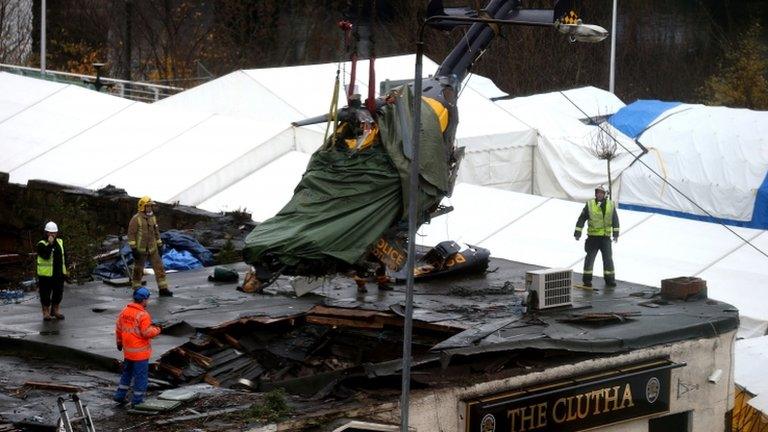
- Published12 December 2013
